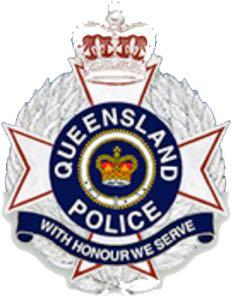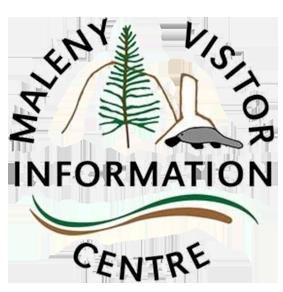
16 minute read
The Hinterlandgrapevine Online News
from Maleny Grapevine Community News and Maleny District Sports Club Results for the period to 07.04.2023

Maleny Commerce News

Have you got your Local Shopping Gift Card Yet?
Glassies Small Business Awards 2023
Why Shop Locally?
While it may not be possible to source all our needs from our local retailers and tradesman, here are a few reasons to think twice before you make your next purchase:
It Creates local jobs and it is personal;

Shopping locally helps Australia grow;
Shopping locally gives better consumer choice and better customer service because you are shopping with a friend;
Assists local businesses support local community & sporting groups;
It reduces your carbon footprint
Will you really support local businesses?
About Maleny Commerce
Maleny and District Chamber of Commerce and Industry Inc. is an incorporated body representing the business community since 1986. It is now known as Maleny Commerce. The Chamber represents the local Maleny and District business community. Join us at one of our monthly business breakfasts. www.malenycommerce.org.au
Nominations are now in for the 2023 Glass House Electorate small business awards. Voting is now open until the 1st May, 2023. You can get nominating at: https://www.andrewpowell.com.au/ The important announcements will be made at a Gala Evening on the 16th May, at The Hideaway, Beerwah. Who will be the awardees? It is all up to YOU!
Who remembers when, where and how these businesses served Maleny.
Humphries and Fisk Real Estate was owned and operated by Ian Humphries and Patricia Fisk, firstly at the intersection of Landsborough Road and Mt View Road, Maleny then later in the Maleny Post Office Building in Maple Street.
Mama
Make Australia Make Again!
If you want to live in a country that builds things you have to buy things that your country builds!
https://issuu.com/Maleny-Grapevine-Community-News
Juvenile Crime - Continuing on from last edition. There is no simple answer, but parents have a big part to play.
From the age of 10 until 18, any offence is dealt with under the Youth Justice Act, which technically defines that person as a "child offender". Children under this age cannot be held criminally responsible for their actions. Much has been reported in the media about the level of juvenile crime, but there is no one answer to the problem.
Simply incarcerating juveniles or just spraying money at the problem are not the answer. More crimes are being committed by a constant group of young offenders thus distorting the real situation.
Building Resilience
As parents, we want to protect our children from juvenile crime in Queensland. But we can’t always be there to shield them from every danger. In order to help our children stay safe, we need to equip them with the necessary skills to cope with difficult situations. That’s why it’s important to focus on building resilience in our kids.
Resilience is the ability to cope with difficult situations, the capacity to move through difficult circumstances without becoming overwhelmed or defeated. It’s about having the skills to work through challenges and the strength to come out of them stronger and more confident.
So, how can we help our kids build resilience?
First, we need to provide them with a safe and supportive environment. We should encourage open communication and be available to listen to our children’s concerns. We should also create a home environment where they feel secure and loved.
Second, we should promote positive thinking in our children. We can do this by encouraging them to focus on the positive aspects of life, rather than the negative. We should also help them recognise their strengths and weaknesses and support them in developing the skills they need.
Third, we should teach our children problemsolving skills. We can help them practice active listening, creative problem-solving, and conflict resolution. We should also encourage our kids to take responsibility for their actions and learn from their mistakes.
Finally, we should foster a sense of self-esteem in our children. We can do this by letting them know that we value them, their opinions, and their abilities. We should also help them develop a strong sense of self-confidence.
By helping our children build resilience, we can give them the skills to deal with difficult situations and the strength to move through life’s challenges. We can help them prepare for the future and stay safe in the face of juvenile crime in Queensland.
Laws and Legislation
As parents, it is important to be aware of the laws and legislation that exist in Queensland to address juvenile crime. Juvenile justice legislation in Queensland is designed to protect children from harm, ensure their rights are respected, and provide them with the opportunity to be held accountable for their actions.
The Juvenile Justice Act 1992 (Qld) is the primary legislation governing juvenile crime in Queensland.
It sets out the roles and responsibilities of the police, the courts, and other relevant agencies in dealing with juvenile offenders. The Act also outlines the process for the processing and sentencing of juvenile offenders.
The Youth Justice Act 1992 (Qld) is the secondary legislation governing juvenile crime in Queensland. This Act provides for the establishment of youth justice conferencing, the creation of youth justice orders, and the supervision and management of young offenders.
The Penalties and Sentences Act 1992 (Qld) sets out the various sentencing options available to the court when dealing with juvenile offenders. These include fines, community service orders, probationary orders, and custodial sentences.
The Criminal Code 1899 (Qld) outlines the various offences that can be committed by juveniles and the applicable penalties.

The Education (General Provisions) Act 2006 (Qld) sets out the rights of young people to access education, and the duties of schools to ensure they are providing appropriate and effective education to young people who are at risk of offending or who have already been involved in the criminal justice system.
The Youth Engagement, Prevention and Intervention Act 2011 (Qld) sets out the roles and responsibilities of the various government agencies involved in responding to juvenile crime. It also contains provisions for the establishment of early intervention and prevention initiatives for young people at risk of offending.
It is important for parents to be aware of the laws and legislation that exist in Queensland to address juvenile crime and to ensure that their children are aware of their rights and responsibilities under the law. With this knowledge, parents can work together with their children and the relevant authorities to ensure that their children are held accountable for their actions, and that they have the best possible opportunities to lead successful and fulfilling lives.
The Juvenile Justice System
The Juvenile Justice System in Queensland is a complex and often confusing concept for parents to understand. It is important to know that the juvenile justice system is designed to protect and rehabilitate young offenders. At the same time, it also seeks to hold young offenders accountable for their actions.
The primary goals of the juvenile justice system are to protect the public, hold young offenders accountable for their actions, provide services to help young offenders turn their lives around, and prevent future criminal behaviour. The Queensland Juvenile Justice System is based on the principles of restorative justice which means that young offenders are provided with an opportunity to repair the harm they have caused to the victim and the community.
When a young person has been charged with an offence, they will either go to the Children's Court or the Youth Justice Court. The Children's Court deals with offences committed by children aged 10 to 17. The Youth Justice Court deals with offences committed by young people aged between 17 and 18. Depending on the seriousness of the offence, the young person may be sentenced to a range of penalties, including suspended sentences, probation, community service, or custodial sentences.
The Juvenile Justice System also provides a range of support services for young offenders, such as counselling, educational and employment programs, and drug and alcohol treatment. These services are designed to help young offenders turn their lives around and address the underlying issues that may have contributed to the offending behaviour.
It is important to remember that young offenders have rights and responsibilities under the law. They have the right to legal representation, the right to a fair trial, and the right to appeal a sentence. It is also important to remember that young offenders are entitled to the same presumption of innocence as adults.
The Juvenile Justice System in Queensland is a complex and often confusing concept for parents to understand. It is important to know that the system is designed to protect and rehabilitate young offenders and to hold them accountable for their actions. The system also provides a range of support services to help young offenders turn their lives around. It is important to remember that young offenders have rights and responsibilities under the law and that they are entitled to the same presumption of innocence as adults.
Rehabilitation
Rehabilitation is a crucial element of the juvenile justice system in Queensland. It is a process that helps young offenders to gain skills and understanding so that they can lead productive and crime-free lives. It is important to remember that juvenile offenders are still children and that they need guidance, support and understanding. Rehabilitation is based on the principle of restorative justice, which means that it focuses on repairing the harm that has been done to victims, the community, and the offender. It can take many forms, such as individual and group counselling, educational courses, and community service programs.
The primary goal of rehabilitation is to help young offenders develop empathy, accountability and responsibility for their actions. It also aims to help them process the emotions and thoughts associated with their crime and to develop the skills and knowledge needed to avoid further offending.
The Queensland Government has developed a range of initiatives to help young offenders in the rehabilitation process. These include programs to help young people build self-esteem and learn life skills, as well as education and employment opportunities.
In addition, there are services that provide support for victims of juvenile crime. These services include counselling, support groups, and advocacy services. They can help victims to cope with the trauma of their experience and to understand the criminal justice system.
Rehabilitation also includes programs that help young offenders reintegrate into the community. These programs provide a range of activities and services which are designed to help young people develop positive relationships and to make positive contributions to their local community.
Rehabilitation is an important part of the juvenile justice system in Queensland. Through rehabilitation, young people can gain the skills and understanding they need to lead productive and crime-free lives. It is important to remember that juvenile offenders are still children, and that they need guidance, support and understanding. This guidance for parents is often missing.
Chapter Four: Support for Parents Support Services
When facing juvenile crime in Queensland, it is important to know that there is a wide range of support services available. Parents of those affected by juvenile crime can access information, assistance, and counselling to help their child and their family cope with the situation.

In Queensland, the Department of Youth Justice (DYJ) provides support for young people who have been charged with an offence or are at risk of offending. DYJ provides a range of services, including juvenile justice advice, prevention and diversion initiatives, case management, and access to other support services.
Other support services that may be available include counselling, drug and alcohol support, mental health services, family and domestic violence support, and financial support. The Australian Government’s Youth Support Services website can help parents locate local services in their area.
The Queensland Police Service can provide advice, support, and information to parents whose children are involved with the criminal justice system. Parents can also access a range of community services, including youth justice conferences, specialist domestic and family violence courts, and the Queensland Children’s Court.
The Queensland Government’s Youth Justice Support Service provides support for young people in conflict with the law, and their families. They provide assistance and advice about legal rights and obligations, and help to link young people to appropriate services.
The Queensland Government’s Aboriginal and Torres Strait Islander Child Protection Service provides support for Indigenous children and young people who are at risk of, or are affected by, juvenile crime. They provide culturally appropriate family and community support, as well as advice on accessing legal services.
Finally, there are a range of charities, not-for-profit organisations, and other support services available to assist parents and families affected by juvenile crime in Queensland. These include Beyond Blue, Kids Helpline, and the Australian Childhood Foundation, who provide free and confidential counselling and support services.
It is important for parents to remember that they are not alone when facing juvenile crime in Queensland. There is a wide range of support services available to help parents and families cope with the situation.
Advice for Dealing with Juvenile Offenders
When it comes to juvenile crime, it can be difficult for parents to know how to best handle the situation. While it can be tempting to try and take matters into your own hands, this is rarely the right approach. As the parent of a juvenile offender, the best thing you can do is to be informed, supportive, and to know where to seek help.

Continued next Page
Who Gives A Crap? - We Do!
What do we really mean when we say our toilet paper helps build toilets?
We trust that our partner organisations know how to best improve global access to proper sanitation – that means our donation could go to building toilets. To put it into perspective, a child under five dies every two minutes from diarrhoeal diseases caused by poor water and sanitation.
Profits from the sale of this toilet paper is used our donation could go to building toilets, but could also mean it supports larger clean water projects.

First, it is important to understand the legal system in your area, particularly when it comes to juvenile offenders. In Queensland, the Youth Justice Act 1992 sets out the requirements and procedures for dealing with juvenile offenders. It is important to familiarise yourself with the Act and to understand the difference between criminal and civil proceedings, as well as the potential penalties for juvenile offences.
Second, it is essential to be a supportive and understanding parent, but also firm at the same time. Research has shown that parental involvement is a key factor in helping young people stay out of trouble. Be sure to monitor your child’s activities, talk to them about their behaviour, and encourage them to reach out for help if they need it.
Third, it is important to know where to seek help if your child does become involved in the juvenile justice system. There are a variety of agencies and organisations in Queensland that can provide assistance, such as the Juvenile Justice Department, the Queensland Police Service, and Aboriginal and Torres Strait Islander Legal Services. It is also important to seek legal advice if your child is charged with an offence. There is no reason for parents to not become involved in their children’s behaviour and discipline.
Finally, it is important to remember that juvenile offenders are still young people with a lot of potential. With the right support and guidance, they can turn their lives around and become productive members of society. As a parent, it is your responsibility to offer that support and to ensure that your child is given the best chance of success.
In summary, when it comes to dealing with juvenile offenders, it is essential for parents to be informed, supportive, and to know where to seek help. By following these steps, parents can help their children stay out of trouble and ensure that they have the best possible chance of a successful future.

Self-Care
When it comes to facing juvenile crime in Queensland, the most important thing that a parent can do is take care of their own physical and mental health. Self-care is essential in order to stay strong, resilient, and able to support their child.
Self-care is any activity that you do to look after your physical and mental health. It can include things like eating a healthy diet, exercising, getting enough sleep, and taking breaks when needed. It is important to take time for yourself to relax, unwind, and do things that bring you joy. It is also important to recognise your own needs and take the time to meet them.
It is normal for parents to feel overwhelmed and anxious when facing juvenile crime in Queensland. Caring for your own mental health is the best way to cope with these feelings. This can involve talking to a mental health professional, engaging in calming activities such as yoga or meditation, or simply taking a walk outside.
It is also important to take care of your physical health. Eating a healthy diet and exercising can help reduce stress and anxiety. It is also important to make sure you are getting enough sleep in order to stay alert and focused.
Finally, it is important to reach out for help when needed. Seeking out support from family and friends, joining a support group, or speaking to a mental health professional can help you cope with the stress and anxiety of facing juvenile crime in Queensland.
Conclusion
It can be difficult for parents to face the challenges of juvenile crime in Queensland, but it is important Continued next Page to remember that there is help available. Parents can access a variety of resources, services, and support to assist with the prevention and response to juvenile crime. Education and awareness are essential to help parents understand the risks associated with juvenile crime and how to respond appropriately. Parents can also access legal assistance, community programs, and other resources to help prevent and address juvenile crime.
The Queensland Government has implemented a number of initiatives to help parents and communities address juvenile crime. These include the Queensland Police Service's Youth Engagement Program, the Juvenile Justice Theories and Practices program, and the Juvenile Justice Taskforce. Each of these initiatives provides resources and support to help reduce juvenile crime in Queensland.

Parents can also reach out to community organisations and support groups for assistance with juvenile crime. These organisations provide support and resources to parents, as well as offer training and education on how to prevent and address juvenile crime.
It is important to remember that while juvenile crime can be a debilitating issue, there are resources and support available to help parents face the challenges of juvenile crime in Queensland.
Throwing your hands in the air and saying “it is just too hard” is not an answer to the present situation in respect to juvenile crime. Parents can access the resources and services outlined herein to help prevent and address juvenile crime.
By working together, we can help protect our children and our communities from juvenile crime. There is only one thing that is for sure and that is that as a community “we cannot standby and let the present situation continue to fester at the detriment of both juvenile criminals and our general society. Whilst juveniles have rights, they also have responsibilities, as do their parents. One of the responsibilities is to not impinge on the rights of another without their consent. Too often we only want to ensure that our rights are protected without thinking about anyone else - “The Me Society”.


Permits to light fires
The loss of life through fire is devastating and has far-reaching effects for families and communities. QFES firefighters attend thousands of preventable house fires each year across the state. Take precautions and protect yourself, your family and your home.


Three simple rules will help keep your family safe: Create your fire escape plan.
Smoke alarms alert you early so you can escape.
The Safehome program helps householders identify fire and safety hazards in and around the home.
Home security measures, such as deadlocks on doors and windows, may be necessary, however it is important not to let them trap you inside your home in an emergency.
Scammers targetting Fake Scratchies
Don't be lured by fake scratchie scams claiming you've won but you can only access your prize if you pay entry/exit fees or taxes to claim your winnings.
Scratchie scams may also offer you an instant prize, but when you contact the trader to claim it, you will be asked to provide payment for various ‘fees’ via wire transfer or preloaded money card. In the end you'll never get the "prize" or your money back.
Maleny SES Volunteer group Be Prepared for severe weather events
What to do if you need assistance
For life threatening emergencies, call Triple Zero (000).For storm and flood related property damage.
Call the State Emergency Service: 132 500. To keep up to date with Emergency Warnings Tune into warnings and updates from your local ABC radio and TV stations
Care needed on Glasshouse Mountains
A woman tragically fell to her death while hiking at Mount Beerwah on the 25th March. This was just one of three events “on the mountains” that day. The woman died after falling 40 metres onto rocks on the eastern side of the mountain.
A paraglider crashed into the side of a cliff face on Mt Beerwah requiring a rescue chopper to transport him to hospital after he sustained serious injuries. Later a man fell and dislocated a shoulder after losing his footing and falling several metres, also on Mt Beerwah..
Maleny Visitor Information Centre
The Maleny Visitor Information Centre is a not for profit, long-standing, independent community service, run by volunteers. The Centre is a ticket selling agency for Maleny Film Society movie screenings along with a range of quality souvenirs and postcards, with a distinctively Maleny flavour along with information about places and events around the area.
The Centre is situated at 2/23 Maple Street, Maleny. It is open 7 days a week between 9.30am-4.00pm. Closed only on Good Friday and Christmas Day.
If you have lost something on your visit to Maleny check with the centre as often items are handed in there. Phone: 07 5499 9033
To find out more about the Maleny Visitors Information Centre and talk to the volunteers or visit the web site: https://malenyinfocentre.edublogs.org/ https://issuu.com/Maleny-Grapevine-Community-News

Maleny Community Groups & When they meet!
Community Groups that form the back bone of the Maleny Community
Maleny Rotary Club
Meeting. Times
1st and 3rd Wednesdays.
6-30pm for 7pm
Maleny Hotel, Bunya St. Maleny
Email: secretary.maleny@rotary9600.org president.maleny@rotary9600.org
Maleny Probus Club
Meeting. Times
Maleny Uniting Church, Landsborough Road, Maleny
Meet 10 am on the 4th Wednesday of each month.
Feb to November 1300 856 859
Queensland Country Women's Association - Maleny Branch
Meetings at The Verandah Room
23 Maple Street, Maleny
8:00 am - 11:30 am.
4th Monday of Month.
Email: qcwa.maleny@gmail.com
The Zonta Club of Blackall Range
Meetings at Various between Montville and Maleny. Dinner meeting 3rd Tuesday of month 6pm.
Email: membership@zontablackrange.org.au president@zontablackallrange.org.au
Apex Club of Maleny
Meeting. Times
MALENY HOTEL/MALENY BOWL'S CLUB
1ST & 3RD MONDAYS, 7.00PM. Email maleny@apex.org.au.
Postal PO BOX 39. MALENY, QLD 4552 0487770653
Maleny Senior Citizens
Meetings at
The Verandah Room 23 Maple Street, Maleny
8:00 am - 11:30 am. 4th Monday of Month. Activities include card games, meetings and regular bus trips
Email: margarry1@bigpond.com
0409 266 507
The LIONS CLUB OF MALENY-BLACKALL RANGE Inc.
Meetings at Maleny Uniting Church Hall
On the 2nd Tuesday of each month at 6.30pm
Monthly Dinner Meeting held at The Orangery, 10 Mountain View Rd, at 6.30pm on 4th Tuesday of month
Email: maleny-blackall-range@lionsq3.org.au
Maleny Commerce
Meetings at Monthly breakfast networking meetings.
2nd Tuesday of the month. Venues to be advised.
Email: info@malenycommerce.org.au https://issuu.com/Maleny-Grapevine-Community-News






